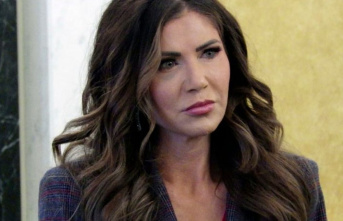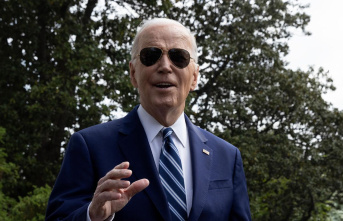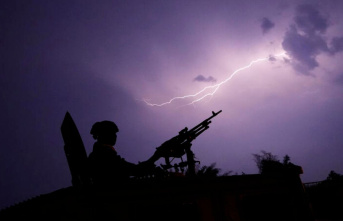Tanzania, Benin, ivory coast: Within six months of the three States, individuals and NGOs have been deprived of the right to sue you before the African court for human and peoples ' rights (AGMR). Six countries are just left where this is still possible.
A court without plaintiffthe AGMR was started with high hopes. In 1998, thirty countries took to the court on the way. Six years later, it began its work, its decisions are for the member States to be binding. But today, the court for many governments and the African Union (AU) has no longer a priority.
"individuals and NGOs are currently the only ones who bring cases before the African court," says the former Deputy AGMR-Chairman Fatsah Ouguergouz. "The African Commission on human and peoples' rights has probably the interest, the court, and the individual States are not ready for it", so Ouguergouz of the DW. With other words: The court will simply run out of cases.
to fight Not assertiveBut not just at the beginning, before any trial begins, the court, with limitations. Some States will block any attempt to court to enforce the decisions. For example, Benin: There had turned opposition politician Sébastien Ajavon to the court. In 2018, he had been sentenced to 20 years in prison. Ajavon contested to be of local elections ruled out has been. The court ordered to suspend the vote, as long as the case would be examined. Nevertheless, they took place as planned on 17. The end of may. As the country had withdrawn its voluntary Declaration already. Another example: On 28. In April a court imposed in the ivory coast, a 20-year sentence against Guillaume Soro, due to corruption. The AGMR had ordered the suspension of the arrest warrant against Soro. In both cases, the governments complained about the gross interference of the "good of the Nation" at risk.
The court is currently trying, through the African Union's mandatory Standards to establish, in order to require the States to implement its judgments. Because so far, the results are devastating. AGMR-managing Director Robert Eno said to DW: "Many of the States against which the court has issued judgments or orders, have not kept it."
control mechanism failedWhat are the Alternatives so make the African a citizen, if the state gives you no Chance of their interests before the courts? The human rights organization Amnesty International warns that many governments are boycotting only the AGMR, but also to the local courts of weaknesses.
"The Alternative is to say to the people: turn to the African Commission on human and peoples' rights, the court in an indirect way," says Fidèle Kikan of the Benin section of the human rights organization Amnesty International. Because the can forward cases to the court. But the works in practice, bad: "We know that of the approximately 300 cases that have been dealt with before the court, only three have come through the Commission. This way works so it is not particularly good," so Kikan to DW. The Commission, which is one of the institutions of the African Union, could also impose sanctions against States that the court ignore the decisions. But this prerogative has never made use of it.
And yet something surprised human rights activists, such as Fidèle Kikan: The same heads of state and government, the rebel in Africa against an alleged subordination to international dishes, have a hard time with the African Jurisdiction. "It is surprising that heads of state, and with more or less populist appearances as a pan-African nest boast of, at, to weaken the regional institutions."
Wanted: Political willAlso from the point of view of the Zimbabwean lawyers star Ford Moyo is not the Problem even when AGMR self: "the Problem of the lack of will among African heads of state, law enforcement to enforce, and to end impunity is rather," says Moyo, the Chairman, to the earlier of the two judges associations in the Region - the Law Society of Zimbabwe and of the SADC Law Association.
That courts fall among African governments out of favor, as soon as you start from their point of view unwelcome cases, however, it is not an isolated case: in addition to the AGMR in particular the International criminal court (ICC) has to fight again and again in order to. As the brought The the Hague chamber of preliminary investigations in Burundi, because of possible crimes against humanity on the path, submitted to the East African country with his exit from the court. Other countries, such as Kenya considered this in the meantime. The ICC is worldwide, for many years, only process events in African States there were, however, pending. This is criticised in Africa often - this criticism wants to leave Moyo, however, do not count: "We should celebrate rather, instead of complaining to us that we will receive attention from the ICC. This means that the resources of this court, be used to end impunity in our Region."
employees: Reliou Koubakin
author: Philipp Sandner
*The contribution of "the African human rights court of justice of the" published by Deutsche Welle. Contact with the executives here.
Deutsche Welle Date Of Update: 30 May 2020, 23:26










